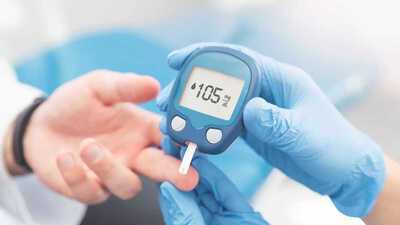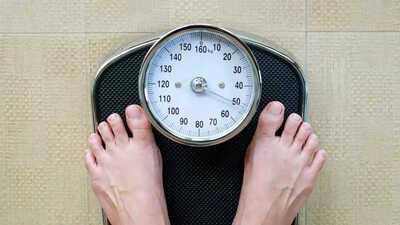Apple cider vinegar (ACV) has become a popular home remedy known for its potential health benefits, from aiding weight loss to stabilizing blood sugar levels. But like most supplements, timing matters. When and how you take ACV can make a difference in its effectiveness and in avoiding unwanted side effects.
What is Apple cider vinegar?Apple cider vinegar is made by fermenting the sugars in apples into acetic acid — the primary active ingredient responsible for its sour taste and health benefits. ACV comes in two main forms- filtered and unfiltered. Sometimes, other fruits such as raspberries are added to create flavored versions, but the base remains apple.
Potential health benefits of apple cider vinegarResearch suggests that apple cider vinegar may support health in the following ways:
Improves blood sugar and insulin levels after high-carb meals
Boosts satiety, helping you feel full and consume fewer calories

Aids weight loss and reduces body fat
May support heart health by improving cholesterol and blood pressure
Offers anti-microbial effects, similar to other vinegars
While some of these findings are promising, most studies are small, and more research is needed to draw firm conclusions.
Best times to drink apple cider vinegar In the morningTaking ACV in the morning may be effective for those looking to manage weight and blood sugar. In one clinical trial, participants who consumed up to one tablespoon of ACV daily for 4–12 weeks experienced reductions in:
Blood sugar levels
Body weight (average 6–8 kg loss)
BMI (up to 3-point drop)

Waist and hip circumference
Total cholesterol and triglycerides
Though results are encouraging, more large-scale studies are needed to confirm these benefits across different groups.
Before mealsSome evidence suggests that drinking ACV before meals may:

When you should avoid taking ACVWhile generally safe in small amounts, apple cider vinegar can cause side effects if misused:
ACV’s acidity may cause stomach upset or nausea if taken undiluted or on an empty stomach.
Always dilute ACV in water, as the acid can damage tooth enamel.
ACV may interfere with diuretics, insulin, or heart medications. Consult your doctor if you’re on regular prescriptions.
Taking it too close to bed might cause reflux or throat irritation, especially if you lie down shortly afterward.
What is Apple cider vinegar?Apple cider vinegar is made by fermenting the sugars in apples into acetic acid — the primary active ingredient responsible for its sour taste and health benefits. ACV comes in two main forms- filtered and unfiltered. Sometimes, other fruits such as raspberries are added to create flavored versions, but the base remains apple.
Potential health benefits of apple cider vinegarResearch suggests that apple cider vinegar may support health in the following ways:
Improves blood sugar and insulin levels after high-carb meals
Boosts satiety, helping you feel full and consume fewer calories

Aids weight loss and reduces body fat
May support heart health by improving cholesterol and blood pressure
Offers anti-microbial effects, similar to other vinegars
While some of these findings are promising, most studies are small, and more research is needed to draw firm conclusions.
Best times to drink apple cider vinegar In the morningTaking ACV in the morning may be effective for those looking to manage weight and blood sugar. In one clinical trial, participants who consumed up to one tablespoon of ACV daily for 4–12 weeks experienced reductions in:
Blood sugar levels
Body weight (average 6–8 kg loss)
BMI (up to 3-point drop)
Waist and hip circumference
Total cholesterol and triglycerides
Though results are encouraging, more large-scale studies are needed to confirm these benefits across different groups.
Before mealsSome evidence suggests that drinking ACV before meals may:
- Decrease appetite
- Help you feel full faster
- Improve blood sugar response after eating
When you should avoid taking ACVWhile generally safe in small amounts, apple cider vinegar can cause side effects if misused:
ACV’s acidity may cause stomach upset or nausea if taken undiluted or on an empty stomach.
Always dilute ACV in water, as the acid can damage tooth enamel.
ACV may interfere with diuretics, insulin, or heart medications. Consult your doctor if you’re on regular prescriptions.
Taking it too close to bed might cause reflux or throat irritation, especially if you lie down shortly afterward.
You may also like

'I settled India-Pakistan, now it's Thailand-Cambodia', says Trump; credits trade pressure, calls it his 'honour'

Euro 2025: Amanda Holden and Alan Carr lead boozy celebrations after England's penalty delight

England win Euro 2025 despite new penalty rule that could have cost Lionesses everything

West Bromwich fire LIVE: Residents told 'close doors and windows' as smoke seen for miles

CRPF personnel made a mark by their duty, courage, says PM on Raising Day





